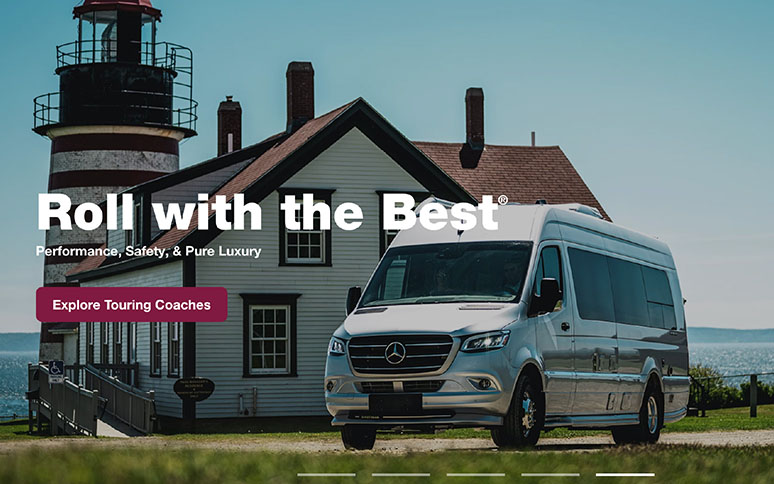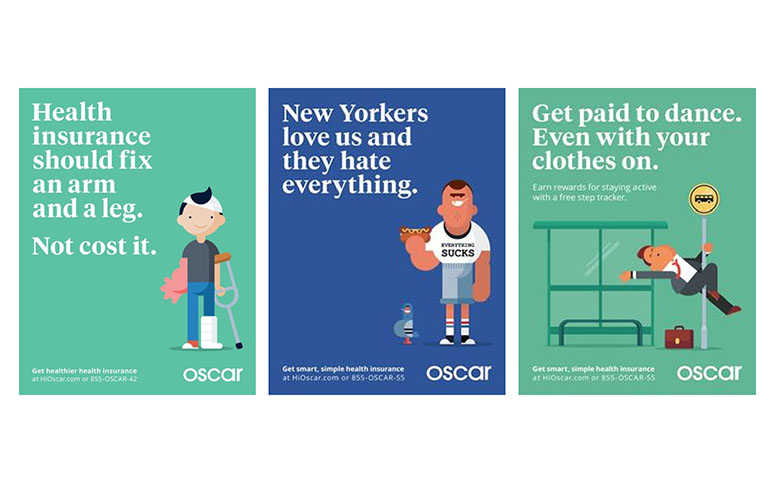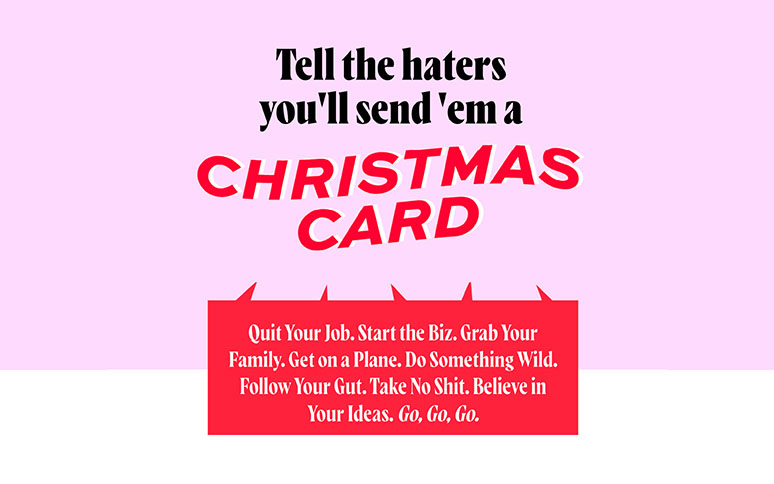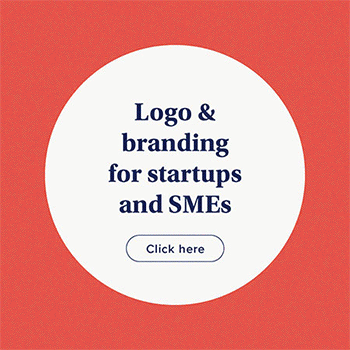In such a cluttered marketplace, learning how to stand out is one of the most valuable things any business owner can do. There are more than 41,000 companies worldwide listed on the stock exchange, and potentially millions of unlisted businesses growing each day.
It’s your job to convince your customers that out of all the options they have, you can give them the best experience.
So, how do you do that? Unfortunately, there’s more to it than most entrepreneurs realise.
Strategic pricing and outstanding features are not enough to make you different from the other companies competing for your customer’s attention. What makes your brand stand out is your ability to connect with your client on multiple levels.
A business needs a brand to thrive, and a brand needs to be different. Here’s how you can find your path for brand differentiation.
What Is Brand Differentiation?
Research shows that high-growth firms are three times more likely to have a strong brand differentiator. Your point of differentiation is how you set yourself apart from the competition. It’s how you prove that you’re better for your customer than anyone else on the market.
If you don’t have a strong differentiator, then you’re stuck competing on price.
Price differentiation used to be a common way for companies to set themselves apart from the crowd. Today, it’s one of the least effective ways to run a business. Although customers may initially respond positively to the promise of a product that offers the same features for a lower price, your image isn’t sustainable. Companies can’t build a brand story around being the cheapest option.
Just as there will always be companies out there with bigger marketing budgets and more features than you, there will also be brands who can beat your price. This means companies differentiating on price end up in a race to the bottom price war. Eventually, to keep offering the lowest price, you’ll lose all your profit margin.
Differentiating your business with pricing also has a negative impact on your brand image. While some customers might see you as offering good value, others will question the quality of your products if you’re offering them for a price lower than they expect.

Why You Need Brand Differentiation
A good brand differentiation strategy is essential for avoiding the race to the bottom in pricing. It’s also a good way to improve your brand image and create a memorable story for your brand. When you know what makes your company different, you can build your marketing, brand awareness, and growth strategies around that point.
Differentiation makes your business memorable, and it shows you where you should be targeting your marketing efforts too. If your point of differentiation is that you’re constantly innovating with your products, then you’d target customers who always want to be on the cutting edge.
Unfortunately, finding the right point of differentiation isn’t easy. A lot of businesses struggle to go beyond the same tired ideas. A good strategy for brand differentiation not only highlights what makes your company special, but also allows you to prove yourself constantly to your target audience.
A point of differentiation must always be:
- Valuable: There needs to be a direct benefit to your customer. Being different doesn’t make you better unless you’re helpful to your audience in a new way.
- Distinctive: Offering the same product as your competitor in a different color won’t make you stand out. The difference needs to be significant enough to make an impact.
- Superior: The way you differentiate should actively make your business better. Are you faster, better at customer service, more capable of supporting clients?
- Clear: Whatever makes you special should be easy to see. If you need to explain why you’re different in-depth to every customer, you won’t see any benefits.
- Emotional: The best brand differentiators strike an emotional chord with customers. Look at how Lush Cosmetics appeals to its customers’ disgust at animal testing.
- Profitable: The differentiation point you choose should be affordable enough that you can continue to make a profit

5 Ways to Differentiate Your Brand
On average, there are 5 kinds of brand differentiation. Some strategies are more effective than others, primarily because they give more depth to your brand story and make your business more human.
Since you’ll build your strategy for brand awareness and marketing around your differentiation point, it’s important to choose carefully.
Let’s look at some of the options.
Product Differentiation
Product differentiation is one of the most obvious forms of brand differentiation. If you can offer something that your customers can’t get from other companies, then you’re inevitably going to be more valuable. Unfortunately, product differentiation is a short-lived strategy.
If you build your business around the fact that you can offer an extra feature compared to your competitors, you’ll lose your brand story as soon as someone duplicates your offer.
It takes more than just a unique feature to hold onto your audience. If you’re planning on differentiating through product, you’ll also need a strategy that will keep you innovating in the future. Lush cosmetics differentiates by offering animal-friendly and eco-friendly products.
Since there are other beauty companies that can offer the same promise on the market, Lush stays ahead of the game by constantly delivering new product lines and building their earth friendly image into everything they do.
Lush isn’t successful just because of a differentiated product, it succeeds because its brand story is built on a personality of selflessness, and authenticity.
Distribution Differentiation
Distribution differentiation is about how you bring your product or service to market. Your go-to-market strategy has a huge impact on how you connect with customers. If you only distribute products through luxury retailers, then this will strengthen your image as a luxury company. If you distribute globally, you’re more likely to appear as a flexible and accessible brand.
Zoom is a great example of a company that uses distribution as a tool for differentiation. Although Zoom works with partners to create zoom room video hardware and tools, it doesn’t lock customers into specific purchases. You can buy Zoom recommended hardware, but the software is flexible enough that it should work with the tools you already have to.
This decision to be platform agnostic is how Zoom differentiates itself from other difficult-to-access video conferencing services. It’s also a great way for Zoom to enhance its image as a video company that puts simplicity and flexibility first.
Service Differentiation
Service differentiation is a slightly more reliable way for businesses to stand out today. Companies with a customer experience mindset drive revenue up to 8% higher than their competitors. Giving your customers excellent experiences every time, they interact with you makes your brand more memorable. This can also strengthen your brand story by showing you care about your clients.
On the surface, T-Mobile is just another mobile company targeting a growing audience. Through service differentiation, the company can stand out and show they’re tuned into a younger, more urban audience. T-Mobile is there to answer any questions their customers have at any time, through multiple channels (including SMS).
The T-Mobile company also allows customers to bring unlocked phones into their network, so customers get an easier experience overall. This dedication to providing clients with simplicity also shows in the company’s commitment to paying early termination fees for clients who want to switch from another provider.

Relationship/Personality Differentiation
Relationships are an area of differentiation intricately connected to service. The relationships that team members build with customers through a unique tone of voice and personality can set you apart from the crowd. Think about how you portray yourself in your industry, and how that attitude compares to the other personalities you can already see from leading brands.
In the fast-food industry, there are countless companies that advertise themselves as being healthy, efficient, and delicious. It’s common to see family-friendly burger companies promising you a cheap meal. There aren’t many companies that have a wicked sense of humour, like Wendy’s.
Wendy’s decided to build its brand around a personality that people could really fall in love with. Although some people do find the company offensive, many find the brand’s authentic tone of voice to be a lot more human and memorable than they’re used to.
Find out what kind of customer you’re appealing to, and tailor your personality into something that they can resonate with. Once you’ve found your brand personality, remember to make it consistent through every touchpoint you use online and offline. A brand differentiated by personality needs to make that attitude shine wherever it goes.
Reputation Differentiation
Reputation can be intricately connected to personality and relationships in the business world, but it can also be something unique. To differentiate yourself based on reputation, you need to present yourself as an expert in your field, in a way that’s believable to your audience.
This might mean that you frequently reference your heritage when talking about your brand, discussing the fact that you’ve been in business for decades. You could also set your reputation apart by connecting your company to a meaningful moment. Perhaps you were the first person to discover a new product or service that’s become famous today?
As you build your brand, you’ll need to work on constantly cementing your reputation and proving yourself to your target audience. The Four Quadrants Advisory company is a financial business dedicated to helping dental practices. To prove that they’re specialists in their field, the company only focuses on a specific niche, which means they have a lot less competition.
In everything they do, the business is transparent about its processes, sharing information on all their practices online for customers to see. The company also shows that all its team members are thought leaders by encouraging them to regularly produce content for the website.
Another great example of reputation differentiation comes from Whole Foods – a food company that frequently partners with other market leaders to show their credibility and authenticity. Keen to be the future of grocery shopping, Whole Foods works on its reputation with every innovation (like getting rid of plastic bags) and marketing campaign.
Can You Blend Brand Differentiators?
You may not choose a single differentiator to set your brand apart.
As endless new companies arrive on the market, a lot of businesses are beginning to blend differentiation points together to make themselves more memorable. The Cisco Webex Team is now differentiating on product, promising to innovate with AI and cognitive collaboration in their new communication products.
Since there are various other companies that can also invest in this technology, Cisco is also doing it’s best to differentiate on reputation too. The company frequently references history in the communications landscape and years of successful technology development in its marketing campaigns.
How Some Brands are Using Brand Differentiation to Reach their Audience
Airstream
Competing with brands like Fleetwood and Jayco, Airstream is a company that makes RVs. This business began in 1929, but it isn’t old-fashioned. Airstream differentiates based on service and reputation. First, the company looks at the intangible desires of its customers, like a wish for a simpler, more retro lifestyle.
Secondly, Airstream ensures that you remember it’s a luxury brand by partnering with leading companies like Mercedes Bens. To differentiate, Airstream:
- Focuses on image, quality, and community
- Builds new websites and digital experiences for customers
- Offers endless events and community experiences
- Partners with luxury businesses
- Tells customer stories as social proof

Oscar Health Insurance
Oscar Health Insurance differentiates through customer service, promising clients that they can have insurance made friendly. Insurance and healthcare can be a daunting topic for a lot of customers, so Oscar tries to make it simpler.
The distribution strategy for Oscar is unique too. This company has a unique website where you can browse through different pages to learn more about your options, then buy a plan that you can customize with the help of a dedicated doctor. It’s a unique, build-your-own approach to health insurance. To differentiate, Oscar Health Insurance:
- Uses bright visuals and a modern website
- Makes learning about insurance easy
- Allows users to collaborate with doctors on personalized plans
- Focuses on a small niche network
- Supports customer browsing on all devices

Client Heartbeat
A company committed to helping companies learn more about their customers, Client Heartbeat differentiates based on customer service, and distribution. First, you can create your own surveys on the platform, using elements for customization that are unique to your business. This makes it easier for brands to gain access to more valuable data about their customers.
To help give companies a less stressful experience when they’re experimenting with surveys for the first time, the company also offers a 21-day free trial. There’s even a little product innovation differentiation worth mentioning here too. Client Heartbeat allows you to compare your results with that of your competitors. Client Heartbeat differentiates through:
- An accessible 21-day free trial
- A clean and reliable website design
- Straightforward and customizable self-service
- Transparent process and price information
- Extra features (like comparing results with other companies in your industry)
Yoh
Yoh is more than just a recruitment company, it’s a brand that differentiates on personality and reputation too. Yoh is a unique website that gives customers access to a modern and friendly experience when they’re looking to advertise themselves to future employers.
The unique personality of the brand makes it more human to candidates who might be nervous about their job search. Yoh constantly uses messaging like you to remind clients that it’s there to serve them. The fun and friendly design of the website will appeal to people of all ages, and there’s virtually no industry jargon in the site copy. Yoh differentiates with:
- Unique imagery and website design
- No industry jargon and a friendly voice
- Consistent brand look and feel on every channel
- Contextual photos and imagery on the website
- Downloadable content and support for customers
- A client-focused approach to service

The Middle Finger Project
Another company differentiating on personality first, the Middle Finger Project takes a unique approach to copywriting and messaging services. While most copywriting companies attempt to appeal to a broad audience with claims they can write for everyone, this brand takes a new approach. The Middle Finger Project is neither boring nor generic.
The project serves to make content creation more appealing to women looking to find their voice. The attitude of screw business as usual is fun and memorable. The Middle Finger Project differentiates with:
- Unique bold messaging in a voice you won’t forget
- Constantly updated content to improve brand reputation
- Interesting approach to targeting a niche audience
- Brilliant customer service with lots of free resources

Highlight What Makes You Different
The key to differentiating your brand is to home in on the one thing that makes you unique and then weaving it into your core narrative.
According to Harvard Business Review, the most effective companies don’t rely on distinctive products, services or brand for differentiation; instead, they focus on creating an enterprise so distinctive that it can create many products, services and brands, each more compelling than the next.
Brand differentiation is a long-term objective that directly affects your brand’s short-term profitability and long-term viability.












